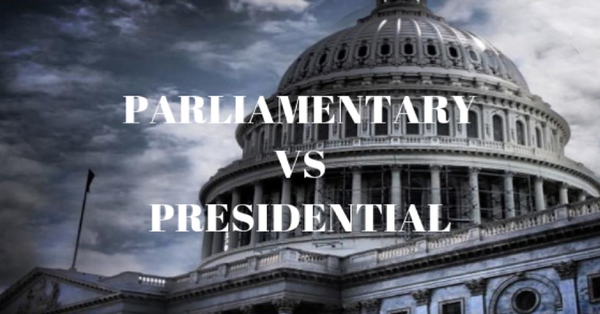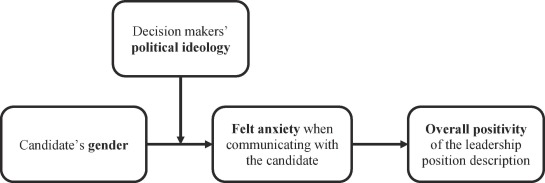The Essential Role of Checks and Balances in Governance
Discover the significance of government checks and balances. Explore how this crucial concept shapes effective governance.

The Crucial Pillar of Democracy: Understanding the Concept of Checks and Balances in Government
In the realm of politics, especially within a united democracy like the United States, the concept of checks and balances plays a pivotal role in maintaining the delicate equilibrium of power. As we gear up for the Senate races of 2024 and witness various political movements and advocacy efforts, it becomes imperative to delve into the essence of checks and balances to comprehend their significance in the broader political landscape. In this blog post, we will explore the checks and balances within a government, their historical roots, and their relevance today, in the context of initiatives such as the United Democracy Project and the Senate Majority PAC.
The Historical Roots of Checks and Balances
The concept of checks and balances can be traced back to the founding fathers of the United States. They were deeply concerned about the concentration of power and the potential for tyranny in a centralized government. To prevent this, they designed a system with three separate branches: the executive, legislative, and judicial branches, each with its own distinct powers and responsibilities. This separation of powers served as the foundation for the system of checks and balances.
The Legislative Branch: Congress, consisting of the House of Representatives and the Senate, holds the power to make and pass laws. This branch creates a system of checks by requiring both houses to agree on proposed legislation before it becomes law.
The Executive Branch: The President is responsible for implementing and enforcing laws. The President also has the power to veto bills passed by Congress, which can be overridden by a two-thirds majority in both houses. This serves as a check on legislative power.
The Judicial Branch: The Supreme Court and federal courts have the authority to interpret laws and the Constitution. They can declare laws unconstitutional, thereby checking the power of both the legislative and executive branches.
The Modern Context: Senate Races 2024 and Political Advocacy
As the United States prepares for the Senate races in 2024, the importance of checks and balances becomes even more apparent. Political movement and advocacy groups, such as the Senate Majority PAC, play a critical role in shaping the political landscape. Here's how checks and balances come into play:
Election Process: Checks and balances begin at the grassroots level with free and fair elections. The Senate races in 2024 exemplify this process. The people's right to choose their representatives ensures that power is not concentrated in the hands of a few.
Legislative Oversight: The legislative branch, comprising elected representatives, holds the executive branch accountable through oversight. Senators and members of the House of Representatives, driven by political advocacy groups like the Senate Majority PAC, scrutinize the actions and decisions of the President.
Judicial Review: The judicial branch, led by the Supreme Court, continues to play a crucial role in interpreting the Constitution and ensuring that all branches of government adhere to it. This judicial review is a vital check on both the legislative and executive branches.
Presidential Power: The President's authority is checked not only by Congress but also by public opinion and political movements. Political rallies and advocacy efforts, like those supported by the Senate Majority PAC, can influence public perception and ultimately impact presidential decisions.
Balancing Interests: Checks and balances also extend to the states. State governments, through their own legislative and judicial branches, provide an additional layer of checks on federal power, contributing to the overall balance in a federal system.
The United Democracy Project and the Future
The United Democracy Project exemplifies the collective effort to strengthen democracy and uphold the principles of checks and balances. By fostering civic engagement, promoting transparency, and advocating for equitable representation, initiatives like this ensure that the government remains accountable to the people.
The Vital Role of Political Movements
In the intricate dance of checks and balances within a government, political movements also play a vital role. These movements represent the pulse of a democratic society, giving voice to the concerns and aspirations of the citizens. The United Democracy Project, among others, serves as a catalyst for change by advocating for democratic reforms and fostering a culture of political participation.
Amplifying Citizen Voices: Political movements provide a platform for ordinary citizens to come together, organize, and amplify their voices. They offer an opportunity for individuals to influence the political landscape, ensuring that the government remains responsive to the needs and desires of the people.
Advocacy for Reform: In the context of the Senate races 2024, political movements can advocate for electoral reforms that enhance the fairness and transparency of the electoral process. This can include measures to address gerrymandering, campaign finance reform, and voter access.
Promoting Accountability: Political movements hold politicians accountable for their actions. By mobilizing citizens and advocating for specific policies or candidates, they send a clear message that elected officials must represent the interests of their constituents.
Shaping Public Opinion: Political movements, often through well-organized political rallies, have the power to shape public opinion. They bring important issues to the forefront of public discourse, influencing the political agenda and forcing politicians to address pressing concerns.
Building Coalitions: These movements are not isolated entities. They often collaborate with like-minded organizations and individuals to build broader coalitions. In doing so, they strengthen their influence and ability to effect change.
The Evolving Landscape of Checks and Balances
The concept of checks and balances within a government is not static; it evolves with the times. As society faces new challenges and opportunities, our systems of governance must adapt to ensure they remain effective. Here are a few ways in which the landscape of checks and balances is evolving:
Technological Advancements: In the digital age, technology has transformed the way governments function and how information is disseminated. This has led to new questions about the role of social media platforms, data privacy, and the spread of disinformation in politics. Checks and balances must adapt to address these challenges.
Globalization: The interconnectedness of the world today means that the actions of one government can have far-reaching consequences. International agreements, organizations, and diplomacy also play a role in the checks and balances of global power.
Environmental Concerns: Environmental issues, such as climate change, present unique challenges that require governments to balance economic interests with long-term sustainability. The courts and legislatures are increasingly called upon to address these complex issues.
Crisis Management: During times of crisis, whether it be a pandemic or a natural disaster, governments often exercise expanded powers. Maintaining a balance between necessary emergency measures and protecting civil liberties becomes crucial.
In the grand tapestry of democracy, the concept of checks and balances remains a cornerstone, and it is continuously woven and rewoven to adapt to the changing times. As we engage in the political rallies, Senate races in 2024, and political advocacy efforts promoted by organizations like the Senate Majority PAC and the United Democracy Project, let us remember that our democracy thrives when we actively participate in the process. It is our collective responsibility to ensure that the delicate balance of power is maintained, that the voice of the people is heard, and that the principles of democracy endure for generations to come.
In embracing this responsibility, we not only honor the legacy of the founders but also contribute to the ongoing evolution and strengthening of our democratic institutions. Checks and balances are not mere words on paper; they are the heartbeat of democracy, and it is within our power to keep them alive and thriving.
What's Your Reaction?















